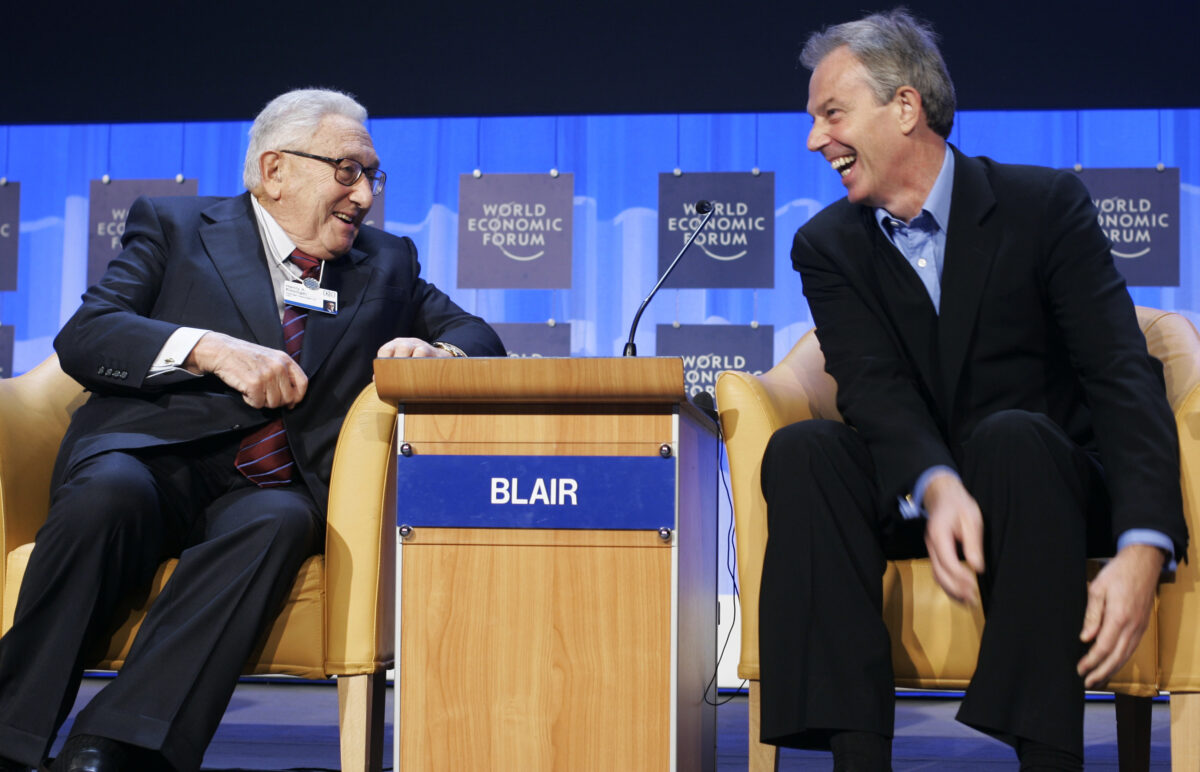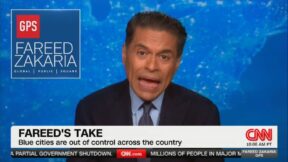Journalists And Artists Rip Tony Blair Over Tribute To ‘Artist’ Henry Kissinger

Former British Prime Minister Tony Blair, right, reaches down to adjusts his socks during a media conference at the World Economic Forum in Davos, Switzerland, Wednesday Jan. 23, 2008. (AP Photo/Peter Dejong)
Former Prime Minister Sir Tony Blair was ripped online Thursday by journalists and celebrities alike for a tribute to the late Henry Kissinger, who died Wednesday, saying the diplomat operated from “a genuine love of the free world.”
Blair wrote: “There is no-one like Henry Kissinger… From the first time I met him… to the last occasion when I visited him in New York and, later, he spoke at my institute’s annual gathering, I was in awe of him.”
According to Blair, Kissinger’s diplomatic prowess elevated international politics to an art form.
“If it is possible for diplomacy, at its highest level, to be a form of art, Henry was an artist,” he continued.
“Of course,” Blair said, “like anyone who has confronted the most difficult problems of international politics, he was criticised at times, even denounced. But I believe he was always motivated not from a coarse ‘realpolitik’; but from a genuine love of the free world and the need to protect it.”
Blair’s commentary was met with backlash from media personalities and journalists, pointing at his own political legacy and role initiating the Iraq War.
Columnist at the i, Andrew Fisher, blasted the tribute as “solidarity between the global fraternity of war criminals.”
Financial Times journalist Stephen Smith said he’d never heard Blair call Kissenger an “inspiration” before.
Journalist Chaminda Jayanetti simply posted “lol.”
Bellingcat founder Elliot Higgins said Blair’s statement was a further reason why his investigative journalism organisation refused to work with him.
“Tony learned a lot about war crimes from Henry… especially how to do them,” tweeted rapper Dan Le Sac.
New European columnist James Ball wrote: “Well this is certainly a choice.”
As prime minister, Blair propelled the nation into a military invasion of Iraq in 2003, resulting in the deaths of thousands of US and UK troops and over 100,000 Iraqi civilians.
He advocated for war based on an ultimately inaccurate premise – the belief that Saddam Hussein’s regime possessed weapons of mass destruction. Following the overthrow of the Iraqi dictator, the region descended into chaos and civil war, a situation from which it has yet to fully recover.
On the domestic front, the Blair government’s forceful campaign to justify military action had severe consequences, including the still unresolved death of government scientist Dr. David Kelly, allegedly by suicide, who said there were no weapons of mass destruction, as well as the dismissal of the director-general and the chairman of the BBC.
New: The Mediaite One-Sheet "Newsletter of Newsletters"
Your daily summary and analysis of what the many, many media newsletters are saying and reporting. Subscribe now!






Comments
↓ Scroll down for comments ↓